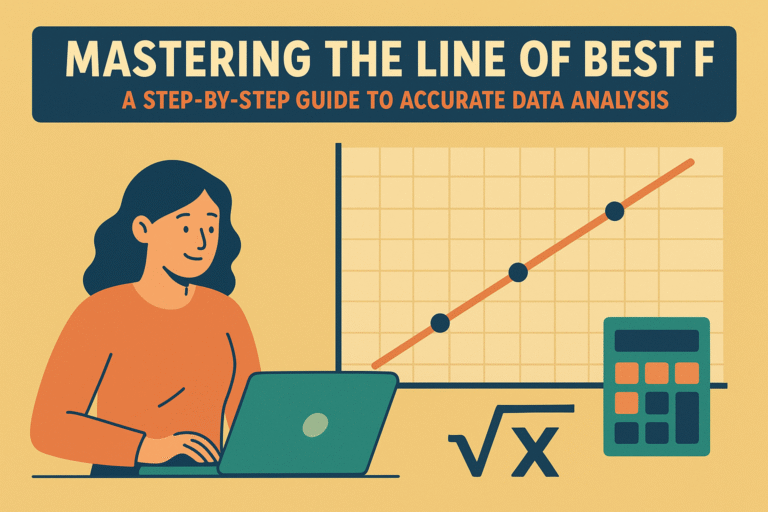Imagine this: While scrolling through your credit card statement, an unexpected extra fee called “Finance Charge” jumps out at you from nowhere and seems out of place. It makes you scratch your head in wonderment about where this fee came from and why you are paying it?
Have you been surprised by finance charges, only to feel overwhelmed by them? Don’t fret: with just some know-how and an online finance calculator at your disposal, decoding these charges becomes much simpler – and will help ensure you stay ahead of the game.
Let’s delve into how finance charges operate, their significance and how to calculate them efficiently–no spreadsheets or complicated formulas necessary!
What Is a Finance Charge, Really?
Think of a finance charge as the “cost of borrowing money.” Lenders or credit card companies charge fees as the cost of accessing their funds, beyond simply interest rates. Finance charges can include:
Interest on outstanding balances
Loan Origination Fees Late Payment Penalties
Service Fees Most often with credit cards and loans, finance charges are determined based on how much money owe and how long it will take to pay back.
Why Should You Care About Finance Charges?
Though finance charges may seem inconsequential at first, over time they can quickly add up and leave you bankrupt. Paying high-interest rates on large balances only compounds these costs further.
Understanding how they work enables you to make more informed financial decisions – like paying off balances faster or shopping around for better rates.
Let’s keep it simple here; here is a simplified formula of how finance charges are generally calculated on credit cards:
Finance Charge = Average Daily Balance multiplied by Daily Periodic Rate multiplied by Days In Billing Cycle
Let’s break it down further: Daily Avg Balance (ADAB): Your average daily balance.
Daily Periodic Rate (DPR): Your Annual Percentage Rate (APR) divided by 365.
Billing Cycle Days: On average, this can last 30 days.
However, who wants to spend their days wrangling with percentages and long division? An online finance calculator comes to the rescue to make life simpler.
Real-Life Example: Sarah’s Sneaky Finance Charge
Sarah is an enthusiastic coffee enthusiast who delights in daily lattes, online shopping sprees and weekend getaways. Sarah also holds a credit card with an outstanding balance of $2,000 at 20% APR that she only pays the minimum balance each month with plans to catch up later.
She noticed a $33 finance charge, both bothersome and confusing. Curious as well, she wondered where that number had come from.
Here is how Sarah completed her calculation using an online scientific calculator and simple finance charge calculator:
Determine Your Daily Periodic Rate (DPR): At an APR of 20% over 365 days, this equals to an estimated Daily Periodic Rate of 0.0548% or 0.000548 per day (decimal equivalent).
Average Daily Balance: Since she did not incur additional purchases or payments, her average daily balance stands at $2,000.
Calculate Your Charge:
$2,000 multiplied by 0.000548 multiplied by 30 = $32.88 (rounded down to $33 on her statement).
Sarah realized that paying the minimum wasn’t cutting it.
Pro Tip: Use an Online Finance Calculator
Sure, you could input all the numbers manually – but why make life harder than necessary? Online finance calculators take away any uncertainty by quickly providing an estimate for finance charges in seconds! Simply input these four variables:
Your outstanding balance carries an Annual Percentage Rate (APR).
Billing Cycle Days
Finally! Now you can see exactly how much finance charges are costing. This step is fast and painless while providing valuable insight.
What About Loans?
Finance charges don’t just apply to credit cards – auto loans, personal loans and even payday loans each contain hidden finance charges that should be considered when borrowing money.
Finance charges on loans may include:
Interest will accrue throughout the loan’s lifespan.
Processing fees (yes, some lenders charge early payoff penalties!). Prepayment penalties (yes, there may be fees associated with paying off early!).
An online finance calculator can help you estimate the total cost of borrowing, giving you greater clarity before signing the dotted line.
Fitness and Finance Charges? They Are Interlinked!
Are fitness and finance related?
You might be asking, what role fitness plays when considering finance charges.
Calculating finance charges is similar to tracking calories or steps: while you might not see immediate results, your daily habits (or missteps) add up over time and require attention and planning in order to reach your financial goals. Just as using an online fitness calculator to track health goals would allow you to do just this for finances as well.
Both tools provide visibility, control, and ultimately–freedom.
Here’s an engaging challenge:
when the urge strikes to skip out on your credit card’s minimum payment, pull up an online finance calculator instead. Enter your balance, APR and billing cycle information – then watch as your calculator crunches the numbers!
Spotting how much interest is accruing can serve as a powerful incentive to pay down debt faster.
Understanding financing charges is also beneficial:
Negotiate more advantageous loan terms
Strategize debt repayment solutions.
Avoid sneaky hidden fees Awareness and action must be taken.
Tech-Savvy Tools: Calculate Smartly
With technology at our fingertips, there’s no excuse for financial guesswork. From scientific calculators for more complex mathematics to finance calculators that quickly estimate financing charges – these tools are your secret weapons when it comes to making intelligent calculations.
Some calculators even allow you to compare multiple scenarios:
What if I pay an additional $100 this month?
How will a lower APR impact my total charges?
What if I change to a bi-weekly payment plan?
These insights can profoundly alter how you approach debt, loans and daily spending.
Finance Charges Can Affect Your Finances Finance charges might seem like just another mundane bank term, but once you gain more insight into them you’ll see just how they impact your financial health.
Remember Sarah? She began using a finance calculator prior to each purchase, challenging herself to limit unnecessary interest charges and save hundreds by being proactive and aware.
Math doesn’t need to be intimidating! With the right tools – scientific calculator, fitness calculator and finance calculator online – and some curiosity, anyone can make smarter, quicker decisions.
Mastering money math doesn’t involve complex formulas – rather, it’s about asking the right questions, using appropriate tools, and making smart choices on a consistent basis.












